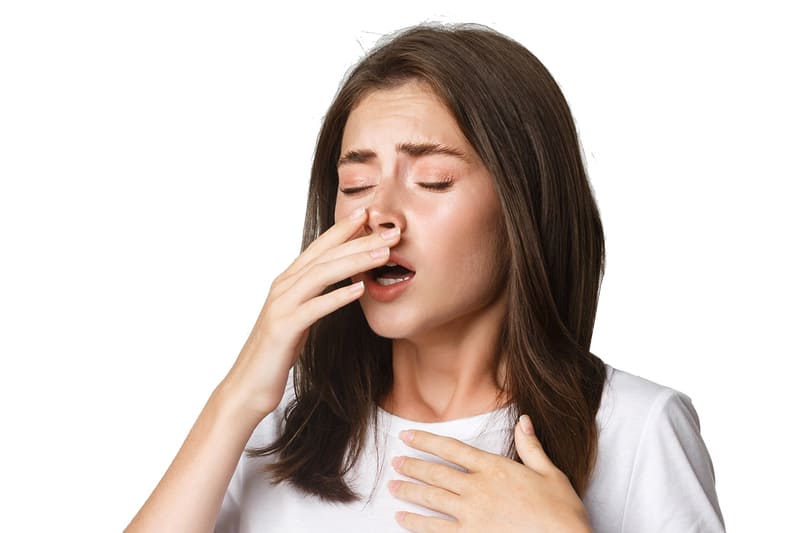Respiratory tract infections (RTIs) are infections in everything that has to do with breathing, such as the sinuses, throat, airways or lungs.
Most RTIs get better without treatment, but sometimes you may need to see a GP (Good Practice).
Symptoms of an RTI include:
- A cough – you may bring phlegm or mucus
- Sneezing
- A stuffy or runny nose
- A sore throat
- Headaches
- Muscle aches
- Breathlessness, a tight chest or a wheezing sound when you breath
- A fever
- Feeling unwell
What can you do about it?
Most respiratory infections pass in 1 to 2 weeks. You can usually treat your symptoms yourself.
- Get plenty of rest
- Drink lots of water to loosen the mucus
- Drink a hot lemon and honey drink to help soothe a cough (not suitable for babies under one year old)
- Gargle with warm salty water
- Raise your head up while sleeping
- Use painkillers to lower a fever and help a sore throat, headaches and muscle pain
To relieve your symptoms, you may try decongestants and nasal sprays.
Cough medicines and throat lozenges might give some relief, but there is little evidence they help.
Some can benefit from paracetamol or ibuprofen.
See a trusted Medical Practitioner (GP) if:
- You feel very unwell or your symptoms do not improve
- You cough up blood or bloodstained phlegm
- You have had a cough for more than 3 weeks
- You’re pregnant
- You’re over 65
- You have a weakened immune system – for example, because you have a condition like diabetes or you’re having chemotherapy
- You have a chronic condition, such as a heart, lung or kidney condition
Treatment from a GP
Treatment will depend on the cause:
- A virus (like colds) – this usually improves by itself after a few weeks and antibiotics will not help
- Bacteria (like pneumonia) –antibiotics (make sure you complete the whole course as advised by a GP, even if you start to feel better)
Sometimes a sample of your mucus may need to be tested to see what’s causing your which might include testing for TBC (Tuberculosis).
Antibiotics are only used to treat bacterial infections. They’re not used for treating viral infections because they do not work for this type of infection.
How to avoid passing the infection on to others:
- Cover your mouth when you cough or sneeze. A mask can also be used.
- Wash your hands regularly
- Throw away used tissues
How to avoid getting an RTI
- Ask a GP about the annual FLU vaccination.
- Ask if you should have the pneumococcal vaccine– this helps prevent pneumonia
- Stop smoking if you smoke
- Drink less alcohol
Causes and types of RTIs
RTIs are often spread in the coughs and sneezes of someone with an infection.
There are several different types. They’re usually grouped into upper and lower RTIs. Upper RTIs include common cold, sinusitis, tonsillitis and laryngitis. A lower respiratory infection can be bronchitis, bronchiolitis, chest infection or even pneumonia.
FLU can be an upper or lower respiratory infection.
We have the newest FLU vaccine available in our clinic. It is recommended to protect yourself and your loved ones. It also protects you better against the effects of air pollution.
This article was provided by Good Practice.




